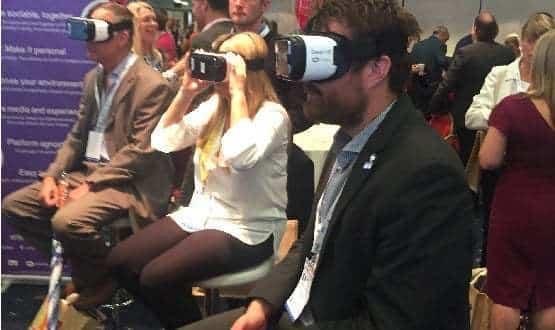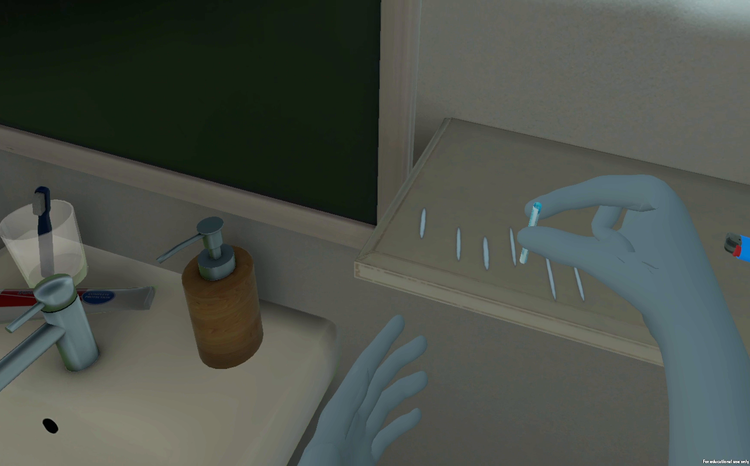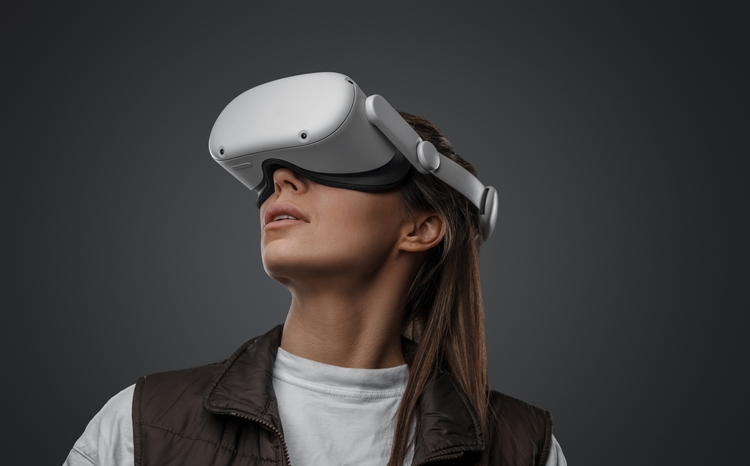Virtual reality healthcare, coming to Liverpool

Virtual reality will be tested as a care tool in Liverpool this year, both for treating patients and helping clinicians meet remotely.
Dr Simon Bowers, vice chairman and clinical information management and technology lead at the Liverpool CCG, said the technology would be tested with small groups of patients by the end of the year.
“There is no time to let the technology bed in,” he said. “If there is a possibility that this could improve outcomes and save money we must use it.”
Liverpool CCG is working with Liverpool-based software company Starship, to develop health applications for the company's virtual reality mobile-based social network vTime,
The company has been asked to build a front-end application for patients in Liverpool to access their health and social records.
This will be a mobile app but also a virtual reality environment that can be accessed via a smart phone.
“This something that people in this city are going to want to embrace, are going to want to get into to manage all of their health and social care needs both transactional, with appointments, e-consultations, things like that, and also to get information pushed out to them.”
Vtime was showing off its VR technology to attendees at the iLinks Innovation conference in Liverpool earlier this month.
People who put on the Samsung Gear VR headset appeared as avatars sitting in a group in a virtual world. These environments shifted from the bottom of the sea, to the top of a mountain, to floating above a river.
But crucially for its potential health applications, participants were transported to a board meeting room, high above a futuristic city, where they could all view clinical information about a patient, such as imaging, projected onto a virtual screen.
Bowers said this ability for remote interdisciplinary meetings was one of the main applications that would be tested this year.
“Through VR, a cardiologist can see three or four patients through a VR multi-disciplinary team a lot quicker than he could actually seeing them face to face. The patient doesn’t have to find a park, they don’t get MRSA, the patient experience is much better.”
Another application that will be tested was using VR as treatment for social isolation. Someone with depression, particularly older people, could be prescribed some time down at virtual pub with other patients.
Vtime has already built such a VR pub which, although lacking the vital ingredient of alcoholic drinks, can be used to watch sports matches.
Liverpool will also be testing VR as a therapy environment for teenagers suffering from mental health issues. Vtime has also built a virtual “zen garden” for Liverpool CCG specifically for this purpose.
Bowers said there has been some evidence that VR can be used to treat mental illness, but it was still “in that early disruptive phase”.
“But if we wait until this is a finished product in three or four years’ time, health has missed the boat.”
Clinical cases for VR were being built now and should be ready to use this year with a select patient groups. It was hoped testing on the mobile app, that provides less immersive interface for patient to interact with their share health records, would also be ready for testing this year.
These projects are all part of the iLinks Informatics Transformation Programme, that is aimed at using technology, innovation and sharing information to transform health and social care in North Mersey by 2020
North Merseyside is already sharing information widely among the area’s GPs and parts of social care, with records being shared millions of time since 2008.
The VR experiments are being funded out an existing CCG fund for assisted technology.
However, Bowers said this money just “prime pumped” the programme and, if it proved successful, wider adoption would rely on central funding.
Like most NHS digital transformation projects, Liverpool is awaiting access to the £1.8 billion in funding linked to the sustainability and transformation plans and local digital roadmaps, which had to be submitted by the end of June.
Without some of that money, VR is likely to remain a novelty rather than a meaningful clinical tool for the foreseeable future.
Even then, for health VR to scale, it will have to overcome many of hurdles that have plagued the take-up of video and e-consultations in the UK; poor technological infrastructure and buy-in from clinicians and patients.
Bowers hopes that the sheer pleasure and novelty of entering VR will help with the take-up, and both clinicians and patients need little more than a smartphone to access it.
“It doesn’t necessary mean you have to buy an expensive smartphone and an expensive headset…you give them a £4 Google Cardboard and they can slide they own phone in.”




